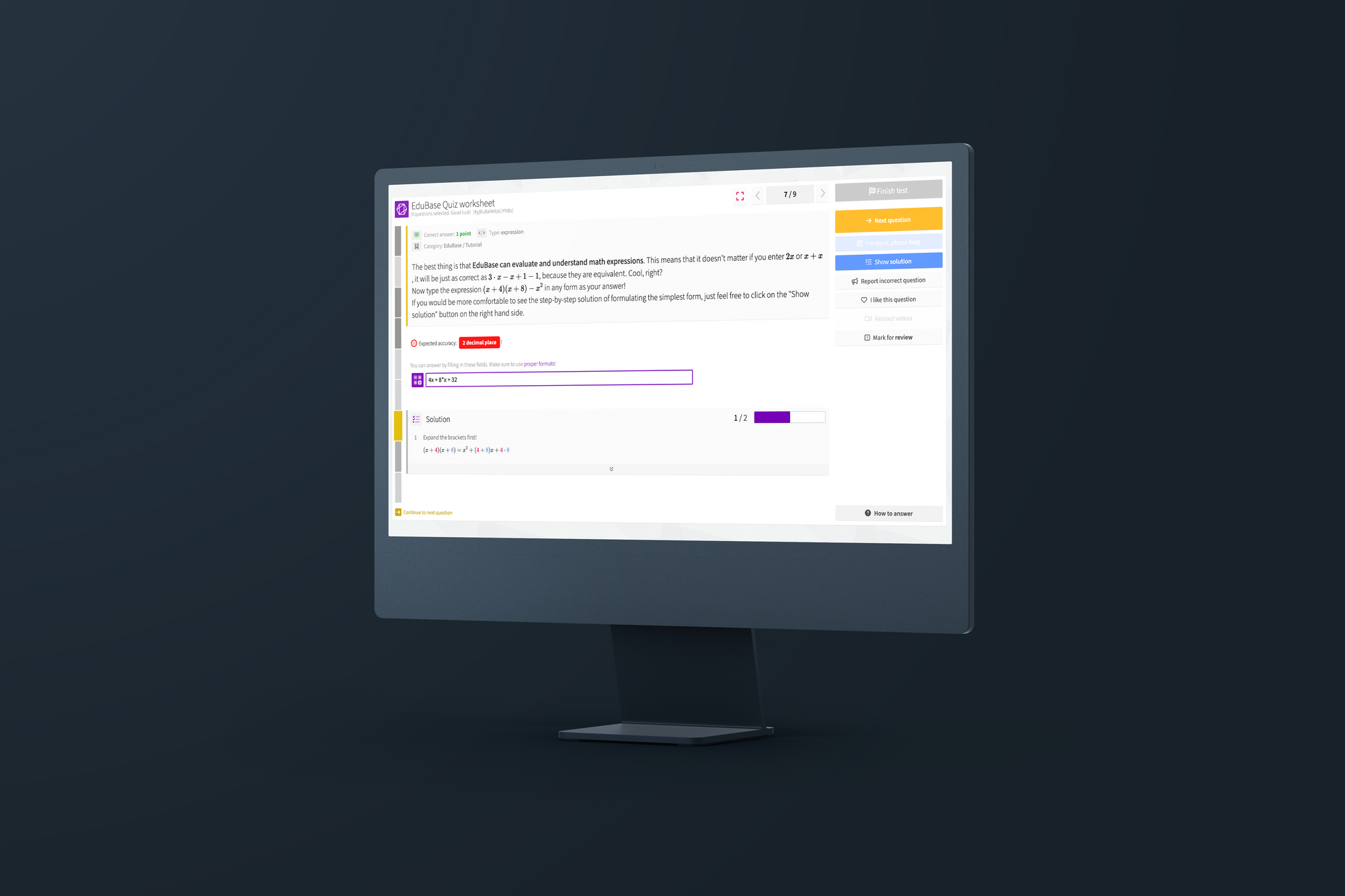Revolutionize Math Quizzes with Expression Type Questions

Introduction
Math quizzes have long been a staple of education, helping educators assess student understanding of various mathematical concepts. However, one major challenge teachers face is the time-consuming process of manually grading mathematical expressions, which could lead to inconsistencies and inaccuracies in evaluation. Here's where EduBase Quiz comes to the rescue!
Expression question type: A game-changer for mathematics
Let's see a very easy example!
Imagine, you have the following question:

There can be endless ways for students to input their answers, for example:
- 10x+16
- 2x+8x+2*8
- 8 + 8 + 10*x
are all equally right answers. Even if they have different forms, they are practically the same thing – they are equivalent – therefore, all correct.
This question type is specifically designed to assess the students' answers regardless of the format of their input. Unlike traditional math quizzes that often require manual grading, EduBase can evaluate the equivalence of the solution and the students' input automatically. This not only saves time but also ensures accurate assessment of mathematical skills.
To make it even better, this can also be paired with parametric questions – so the numbers "2" and "8" in these examples can be random numbers:

As you can see the answer on the left side was accepted:

Built-in Functions
The above example depicts a very easy use case, however, real-life scenarios might involve the usage of functions as well. Luckily, EduBase got you covered there as well.
There is a long list of functions that can be used, such as
- basic mathematical functions (e.g., sqrt, log),
- trigonometric functions (e.g., sin, cos),
- unit conversion functions (e.g., degree2radian, number2roman),
- combinatorial functions (e.g., factorial, permutation, combination),
- two-parameter functions (e.g., min, mod, gcd),
while also supporting the notion of +/- infinity.
To see the full list of supported functions, visit our help page.
How can I try it?
If you want to try creating your own expression tasks, do not hesitate! You can either contact us and have a live demonstration of this or just simply try it on our homepage, www.edubase.net!
